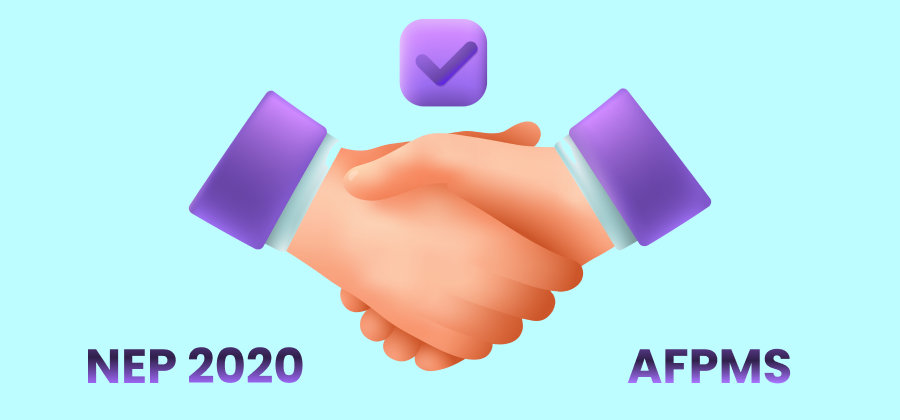News or Article Detail
The Imperative of Adapting to Technology in Schools: Embracing NEP 2020 with AFPMS

The National Education Policy (NEP) 2020 marks a transformative milestone in India's educational landscape. It seeks to overhaul the existing system to create a more holistic, flexible, multidisciplinary, and technology-integrated approach to education. As we delve into the nuances of NEP 2020, it becomes evident that the integration of technology is no longer optional but a necessity for every school in India. To achieve this vision, adopting a comprehensive school management system like AFPMS (Academic Flow and Performance Monitoring System) is an essential first step.
Understanding NEP 2020 and Its Technological Vision
NEP 2020 emphasizes the importance of technology in several key areas:
- Enhanced Learning Experience: Technology can create interactive and personalized learning experiences, making education more engaging and effective.
- Inclusivity and Accessibility: Digital tools can bridge the gap for students with disabilities and those in remote areas, ensuring that quality education is accessible to all.
- Teacher Empowerment: By using technology, teachers can access continuous professional development, improve their teaching methods, and better cater to students' individual needs.
- Efficient Administration: Technology streamlines administrative processes, allowing schools to focus more on educational outcomes rather than bureaucratic tasks.
Why Schools Must Embrace Technology
1. Personalized Learning and Student Engagement
Technology enables personalized learning pathways for students, catering to their individual strengths and weaknesses. Interactive tools and digital resources make learning more engaging, helping students retain information better. For instance, multimedia content can simplify complex concepts, making them easier to understand.
2. Inclusivity and Access to Quality Education
Digital platforms break down geographical barriers, providing students in remote areas with access to quality education. Additionally, assistive technologies ensure that students with disabilities can participate fully in the learning process. This aligns perfectly with NEP 2020?s goal of equitable and inclusive education.
3. Empowering Teachers
Technology equips teachers with tools for continuous professional development. Online courses, webinars, and digital teaching resources enhance their skills and teaching methodologies. This empowerment enables teachers to deliver high-quality education and better address the diverse needs of their students.
4. Streamlining Administrative Processes
Administrative tasks can consume a significant amount of time and resources. A school management system like AFPMS automates these processes, from attendance tracking to fee management, freeing up valuable time for educators to focus on teaching and student development.
The Role of AFPMS in Transforming Education
AFPMS is a comprehensive school management system designed to align with the goals of NEP 2020. Here?s how AFPMS can drive this transformation:
1. Centralized Student Data Management
AFPMS provides a centralized platform to manage student data, including academic performance, attendance, and extracurricular activities. This holistic view helps educators make informed decisions about each student's educational journey.
2. Enhanced Communication
Effective communication between teachers, parents, and students is crucial for a supportive educational environment. AFPMS facilitates seamless communication through integrated messaging systems, ensuring that all stakeholders are on the same page.
3. Performance Monitoring and Analysis
With AFPMS, schools can track and analyze student performance over time. This data-driven approach enables early identification of areas where students may need additional support, helping to tailor interventions and improve educational outcomes.
4. Exposure to National Level Competitions
AFPMS provides students with opportunities to participate in national-level competitions, benchmarking their skills against peers across the country. This exposure not only boosts confidence but also highlights areas for improvement.
5. Adapting to Changing Interests
Students' interests can evolve over time. AFPMS tracks these changes, ensuring that career guidance and educational pathways remain relevant to their evolving aspirations. This adaptability is crucial for preparing students for future success.
Conclusion<\h3>
NEP 2020 envisions a technologically advanced, inclusive, and flexible education system. To bring this vision to life, every school in India must embrace technology and adopt comprehensive school management systems like AFPMS. By doing so, we can create an educational ecosystem that not only meets the diverse needs of students but also prepares them for a rapidly changing world. The integration of technology in education is not just a step forward; it is a leap towards a brighter and more equitable future for all.
